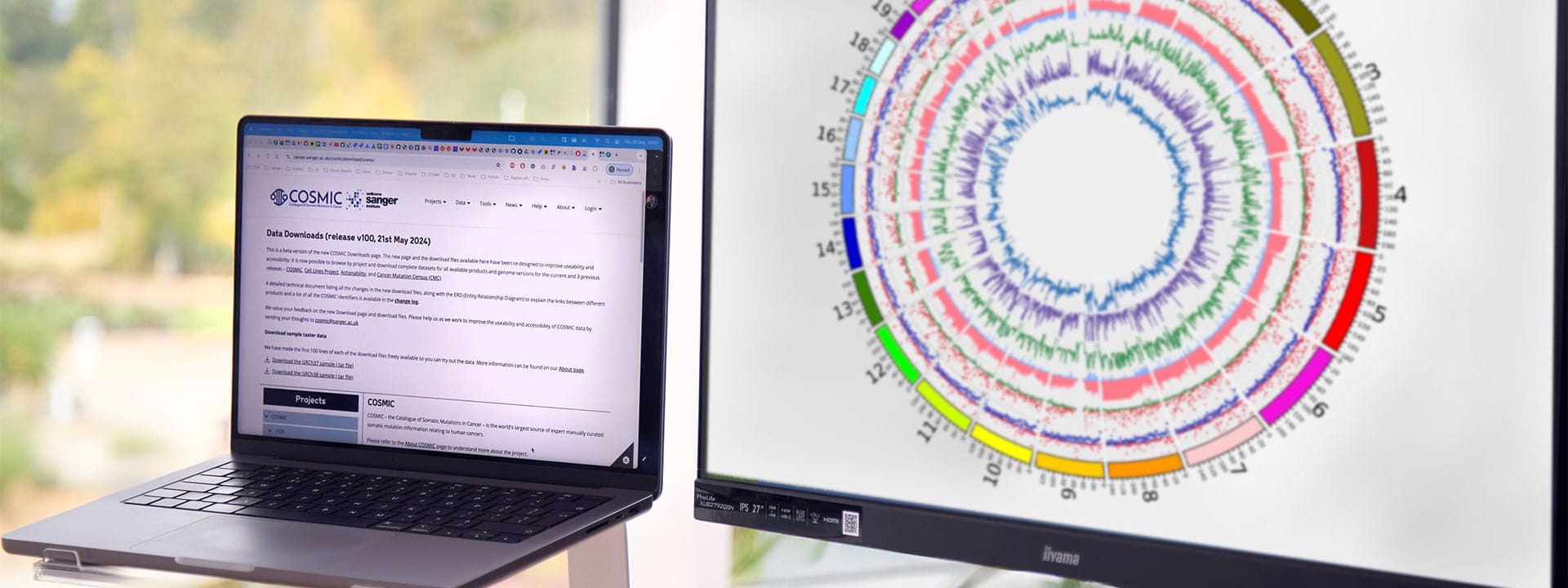COSMIC provides vast amounts of high-quality data, expert interpretation, and efficient analysis all in one place, making it the go-to resource for researchers, clinical scientists, and industry professionals worldwide.
Whether you're analysing patient data, predicting off-target effects or identifying potential targets, COSMIC provides the structured, expert-curated data you need.
By eliminating the need for manual data collection and interpretation, COSMIC allows our users to focus on their day-to-day activities, moreover, our team’s extensive expertise ensures accuracy and relevance that may not be available in-house. With all the necessary data consolidated in one place, challenges associated with working with fragmented data sources are alleviated. Additionally, COSMIC is backed by thousands of publications, meaning every dataset is informed by the latest research and tailored to real-world scientific needs.
On this page, we explore three key ways COSMIC’s data can be used, detailing how each of our specialised modules plays a role in driving groundbreaking insights.
Explore the case studies below to see exactly how COSMIC data can accelerate your research and decision-making.
Target discovery and validation
Example users: Pharmaceutical or biotech companies working in the oncology drug discovery sector

Pharmaceutical and biotech companies in the oncology drug discovery sector typically use COSMIC to stratify large data sets to identify likely drivers and candidates for drug targets. Knowing if a variant is a likely driver of cancer and its prevalence can help to narrow the focus on the most likely targets. When used in combination with our Clinical Insight modules the current status of drug trials and actionable variants can be determined. Our growing resistance data can save time by allowing users to screen for variants that are known to be resistant to one or more drugs. Core COSMIC also maps the variant data onto a set of commercially available cell lines which can allow users to procure these for preclinical experiments. This trusted resource empowers researchers to make informed decisions in developing stage 1 targets for innovative cancer therapies, providing high quality, comprehensive and up-to-date data which is supported by the meta data of each sample.
Modules these users find particularly useful: Gene Census, Mutation Census, Actionability, Resistance and Core COSMIC
Clinical reporting
Example users: Clinical scientists in pathology laboratories within a hospital/healthcare or patient testing environment

For users in a hospital or healthcare setting where the patient's genome has been sequenced, this data can be used to help diagnose and guide the patient's care. Once variants are called in the sequence data, these can be matched to the data from Core COSMIC to identify if the variant has been previously seen in a specific type of cancer. Knowing that a variant has already been studied in a particular disease gives confidence to clinicians in making a diagnosis. When used in conjunction with our Clinical Insight modules, drug resistance can be identified. Additionally, information on active drug trials including their current status, make treatment selection more robust. For more complex cases users can also explore a variant and trace back the original papers in which it was identified and research papers that articulate the particular biological mechanism (Hallmarks of Cancer). In fast-paced hospital and diagnostic environments, where time is limited, COSMIC’s traceable and reliable data helps clinical scientists deliver actionable insights that both healthcare providers and patients can trust.
Modules these users find particularly useful: Core COSMIC, Mutation Census, Actionability, Resistance
Target and off-target effect identification
Example users: Biotech in the gene therapy, gene editing and theranostics space

Users in the gene therapy and editing space rely on high quality variant data to confirm selections that are on-target but also for information that will indicate off-target effects. In many cases these off-targets effects can be significant and avoiding them can save time and resources. Typically the Gene Census list is used as a definitive list of genes causally implicated in cancer and as the starting point to identify candidates for gene editing or for use in the theranostics space. Mutation Census provides a secondary level of information helping to identify the variants most likely to be drivers. Core COSMIC data can then be used to explore the gene and the mutation profile across all tissues. Meta data for the samples can also be used to select particular cohorts of samples to interrogate the data in more detail. This ability to model outcomes and to validate findings in pre-clinical models gives the user the ability to optimise protocols.
Modules these users find particularly useful: Gene Census, Core COSMIC, Mutation Census




